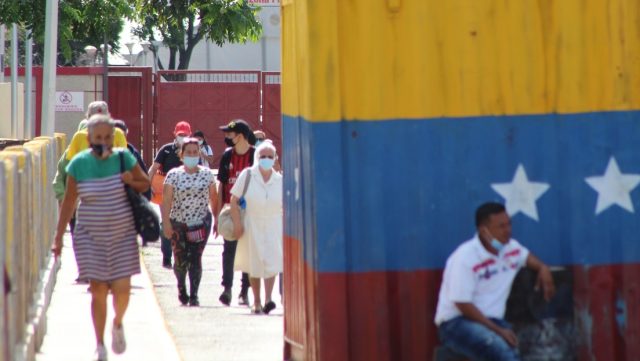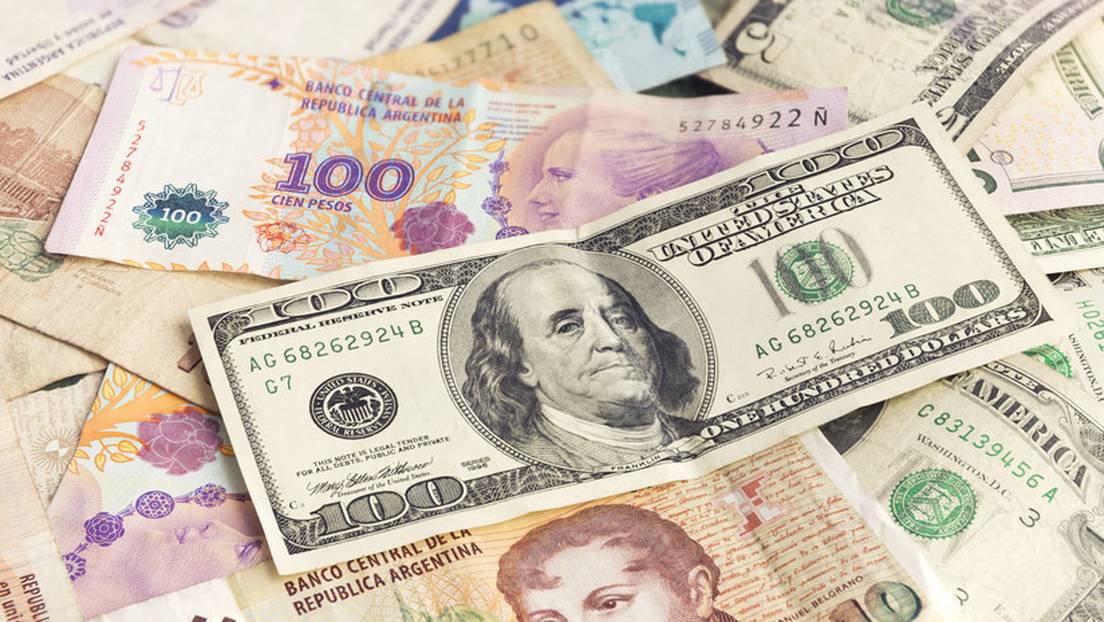The elected president of Colombia, Gustavo Petro, has taken an important step to achieve —as he promised in his electoral campaign— the reestablishment of diplomatic relations with Venezuela.
Petro communicated by telephone with the president of Venezuela, Nicolás Maduro, to «open the borders and restore the full exercise of Human Rights» in the more than 2,200 kilometers of the border area. Before that conversation, Maduro celebrated the victory of the Pacto Histórico (Historical Pact) and pointed out that this victory heralded «a new time» (in the relationship between the two countries).
This first rapprochement marks an important turn in diplomatic relations between Caracas and Bogotá, since they break the «diplomatic siege» that the recent Government of Iván Duque imposed against Venezuela and could mean the relaxation of the tensions that both countries have maintained since the governments of Hugo Chavez and Alvaro Uribe.
«He didn’t lack time, he lacked balls!»
In August 2012, when Juan Manuel Santos was the president of Colombia, his predecessor Álvaro Uribe, who occupied the House of Nariño for two continuous periods (2002-2010), admitted that at some point in his administration he was about to carry out «a military operation in Venezuela» but he did not do it out because «he lacked time».
Those controversial statements by Uribe occurred during a university conference, where he said that his government had obtained «evidence of guerrilla camps in Venezuela» and that he had «three options» to proceed: denounce, remain silent or act militarily.
Hugo Chávez, president of Venezuela at the time, responded harshly to Uribe’s words: “He didn’t lack time, the gentleman lacked balls. And besides, the hand of the imperial extreme right was behind him trying to generate a war, but he did not dare. He had plenty of time».
On the brink of a war
The friction between Chávez and Uribe began in 2007, when Venezuela acted as a mediator between Colombia and the FARC-EP guerrillas to obtain exchanges of hostages for guerrillas. The first impasse occurred when Bogotá interrupted the process, affirming that the Venezuelan president had maintained an unauthorized communication by telephone with the then Colombian Army General, Mario Montoya.
Weeks later, in December 2007, Chávez reported on the FARC-EP’s intention to release three hostages: Consuelo González, Clara Rojas and Emmanuel, the latter’s son, born in captivity. The announcement provoked rejection in the House of Nariño, but later Uribe agreed to make it happen with the intermediation of the International Red Cross. In February 2008, Caracas also negotiated the release of former senators Luis Eladio Pérez, Orlando Beltrán, Gloria Polanco and Jorge Eduardo Gechem.
But the progress of the process went to waste when the Colombian Army bombed —in March 2008— a FARC-EP camp inside Ecuadorian territory, an action that caused the death of 19 guerrillas, including Raúl Reyes, the second in command. of the armed group. The event caused a severe diplomatic crisis between Colombia and Ecuador and Venezuela, which almost led to a war.
As a result of this incident, Chávez mobilized a dozen Army battalions to the border with Colombia and ordered the closure of the embassy in Bogotá, assuring that an attack on Venezuelan territory was being planned from the House of Nariño. For this reason, when Uribe assured that he had lacked «time» to attack Venezuela, Chávez said: «When there is a confession, there is no proof required».
Quarrels and mediations
After Colombia’s attack on Ecuadorian territory, the situation was the central theme of the X Summit of the Rio Group held in Santo Domingo, Dominican Republic. There, the presidents of Ecuador and Colombia staged a heated discussion. The belligerent tone, added to Chávez’s accusations against Bogotá, provoked reactions from the other leaders, who called for avoiding a military conflict.
The Summit, led by Dominican President Leonel Fernández, managed to lower tensions and ended with the image of Uribe getting up from his chair to look for President Correa and shake his hand, an action he repeated with Chávez.
Two years later, the XI Summit of the Rio group was held in Cancun, Mexico. On that occasion, Chávez and Uribe again starred in another altercation that began when —in a private meeting— the Colombian president accused the Venezuelan president of executing an alleged blockade against Colombian companies, which he compared to the US blockade on Cuba.
After the accusations —reported by witnesses at the time—, Chávez warned that he would leave the event if Uribe continued the confrontation. However, the Colombian president maintained the harsh tone: «Be a man and stay to discuss face to face, you who only insult from a distance». Faced with the challenging phrase, Chávez said: «Go to hell», at which point the president of Cuba, Raúl Castro, intervened to settle the discussion.
Felipe Calderón, then Mexican president, reported after the episode, that Caracas and Bogotá had agreed to «conduct differences with friendly dialogue» with the support of Argentina, Brazil, the Dominican Republic and Mexico.
The Santos Pendulum
In 2010, against all odds, Juan Manuel Santos assumed the presidency of Colombia and began a process of talks with Venezuela, despite the mistrust that Chávez had shown against Uribe’s former defense minister.
Despite several conflictive episodes, during that period both leaders worked to prevent the rapprochement from «derailing», but after the death of Chávez and the electoral victory of Nicolás Maduro in Venezuela, the situation changed.
Maduro accused Colombia of being behind a plot to overthrow and assassinate him, with the help of the US, so relations soured. Santos’ rapprochement with former opposition presidential candidate Henrique Capriles increased tensions, although a meeting months later ironed out some differences.
Two years later, however, another problem occurred. Maduro ordered the border to be closed due to an armed attack against Venezuelan soldiers and the smuggling of gasoline extraction in the Táchira state, which borders with Colombia. The situation was resolved in August 2016, when both governments made peace in another presidential meeting.
In August 2018, Maduro was the target of an explosive-laden drone attack during a public event on one of the most important avenues in Caracas. The Venezuelan president accused Santos of being responsible for the attack and the controversies between them were revived.
Duque and the diplomatic siege of Venezuela
In 2018, already with Iván Duque in the presidency of Colombia, Maduro closed the border alleging that there was a danger of a military incursion. In January of the following year, the then opposition deputy Juan Guaidó proclaimed himself «interim president» of Venezuela and Bogotá recognized him immediately.
In this way, Duque activated «the diplomatic siege» against Maduro’s «dictatorship» and predicted that his Venezuelan counterpart had «very few hours» left, a statement that he recently acknowledged that «perhaps» it had been «an error».
In February 2019, Colombia coordinated with Guaidó and several governments (US, Chile and Paraguay) the delivery of alleged «humanitarian aid» that was attempted to be forced into Venezuela. Maduro described the action as an invasion attempt and broke all relations with Bogotá, one of the most critical milestones between the two nations.
Since then, both governments have made accusations. Colombia constantly accuses Venezuela of «protecting» guerrillas and Caracas denounces that Bogotá promotes the incursion of criminal groups and criminal gangs into Venezuelan territory for seditious purposes.
Now, while Petro waits to assume the Presidency next August, expectations are centered on two urgent challenges: to fully renew relations with Venezuela –which would imply, in principle, full recognition of the Maduro government– and the immediate attention of a living border, with a historic social exchange and proven economic potential for both countries.



